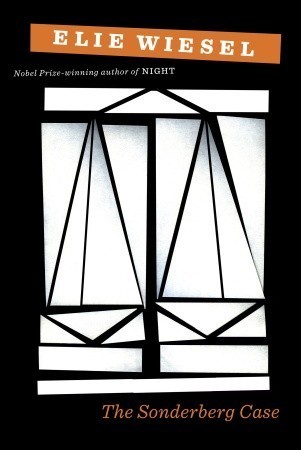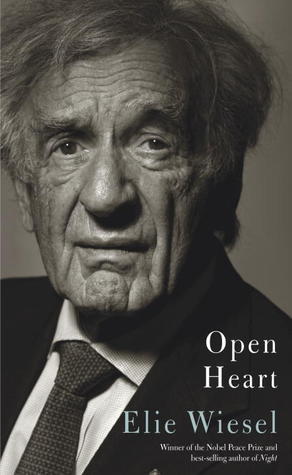Elie Wiesel

Night (The Night Trilogy, #1)
Elie Wiesel
Born in the town of Sighet, Transylvania, Elie Wiesel was a teenager when he and his family were taken from their home in 1944 to Auschwitz concentration camp, and then to Buchenwald. Night is the terrifying record of Elie Wiesel's memories of the death of his family, the death of his own innocence, and his despair as a deeply observant Jew confronting the absolute evil of man. This new translation by his wife and most frequent translator, Marion Wiesel, corrects important details and presents the most accurate rendering in English of Elie Wiesel's testimony to what happened in the camps and of his unforgettable message that this horror must simply never be allowed to happen again.

Day
Elie Wiesel
"Not since Albert Camus has there been such an eloquent spokesman for man." --The New York Times Book Review
The publication of Day restores Elie Wiesel's original title to the novel initially published in English as The Accident and clearly establishes it as the powerful conclusion to the author's classic trilogy of Holocaust literature, which includes his memoir Night and novel Dawn. "In Night it is the ‘I' who speaks," writes Wiesel. "In the other two, it is the ‘I' who listens and questions."
In its opening paragraphs, a successful journalist and Holocaust survivor steps off a New York City curb and into the path of an oncoming taxi. Consequently, most of Wiesel's masterful portrayal of one man's exploration of the historical tragedy that befell him, his family, and his people transpires in the thoughts, daydreams, and memories of the novel's narrator. Torn between choosing life or death, Day again and again returns to the guiding questions that inform Wiesel's trilogy: the meaning and worth of surviving the annihilation of a race, the effects of the Holocaust upon the modern character of the Jewish people, and the loss of one's religious faith in the face of mass murder and human extermination.

Dawn
Elie Wiesel
Elisha is a young Jewish man, a Holocaust survivor, and an Israeli freedom fighter in British-controlled Palestine; John Dawson is the captured English officer he will murder at dawn in retribution for the British execution of a fellow freedom fighter. The night-long wait for morning and death provides Dawn, Elie Wiesel's ever more timely novel, with its harrowingly taut, hour-by-hour narrative. Caught between the manifold horrors of the past and the troubling dilemmas of the present, Elisha wrestles with guilt, ghosts, and ultimately God, as he waits for the appointed hour and his act of assassination. Dawn is an eloquent meditation on the compromises, justifications, and sacrifices that human beings make when they murder other human beings.

The Sonderberg Case
Elie Wiesel
From the Nobel laureate and author of the masterly Night, a deeply felt, beautifully written novel of morality, guilt, and innocence.
Despite personal success, Yedidyah—a theater critic in New York City, husband to a stage actress, father to two sons—finds himself increasingly drawn to the past. As he reflects on his life and the decisions he’s made, he longingly reminisces about the relationships he once had with the men in his family (his father, his uncle, his grandfather) and the questions that remain unanswered. It’s a feeling that is further complicated when Yedidyah is assigned to cover the murder trial of a German expatriate named Werner Sonderberg. Sonderberg returned alone from a walk in the Adirondacks with an elderly uncle, whose lifeless body was soon retrieved from the woods. His plea is enigmatic: “Guilty…and not guilty.”
These words strike a chord in Yedidyah, plunging him into feelings that bring him harrowingly close to madness. As Sonderberg’s trial moves along a path of dizzying yet revelatory twists and turns, Yedidyah begins to understand his own family’s hidden past and finally liberates himself from the shadow it has cast over his life.
With his signature elegance and thoughtfulness, Elie Wiesel has given us an enthralling psychological mystery, both vividly dramatic and profoundly emotional.

The Accident
Elie Wiesel
A young journalist steps off a curb and into the path of a speeding taxicab. Is it an accident? Or has a tormented past driven Eliezer, a survivor of the German death camps, to attempt suicide? Gravely injured, torn between choosing life and death, Eliezer relives the horrors of Auschwitz, remembers the tragedy of a child forced into prostitution by the Nazis, and puzzles over his passionate affair with a beautiful woman he cannot love. Told with the true voice of a witness, The Accident portrays one man's quest to understand the catastrophe that befell him, his family, and his people.

Noite
Elie Wiesel
Nascido no seio de uma família judia na Roménia, Elie Wiesel era adolescente quando, juntamente com a família, foi empurrado para um vagão de carga e transportado, primeiro para o campo de extermínio, Auschwitz, e, depois, para Buchenwald. Este é o aterrador e íntimo relato do autor sobre os horrores que passou, a morte dos pais e da irmã de apenas oito anos, e da perda da inocência a mãos bárbaras. Descrevendo com grande eloquência o assassínio de um povo, do ponto de vista de um sobrevivente, Noite faz parte dos mais pessoais e comovedores relatos sobre o Holocausto, e oferece uma perspectiva rara ao lado mais negro da natureza humana.

La notte
Elie Wiesel
Ciò che affermo è che questa testimonianza, che viene dopo tante altre e che descrive un abominio del quale potremmo credere che nulla ci è ormai sconosciuto, è tuttavia differente, singolare, unica. (...) Il ragazzo che ci racconta qui la sua storia era un eletto di Dio. Non viveva dal risveglio della sua coscienza che per Dio, nutrito di Talmud, desideroso di essere iniziato alla Cabala, consacrato all'Eterno. Abbiamo mai pensato a questa conseguenza di un orrore meno visibile, meno impressionante di altri abomini, ma tuttavia la peggiore di tutte per noi che possediamo la fede: la morte di Dio in quell'anima di bambino che scopre tutto a un tratto il male assoluto? (dalla Prefazione di F. Mauriac).

Open Heart
Elie Wiesel
Translated by Marion Wiesel
A profoundly and unexpectedly intimate, deeply affecting summing up of his life so far, from one of the most cherished moral voices of our time.
Eighty-two years old, facing emergency heart surgery and his own mortality, Elie Wiesel reflects back on his life. Emotions, images, faces and questions flash through his mind. His family before and during the unspeakable Event. The gifts of marriage and children and grandchildren that followed. In his writing, in his teaching, in his public life, has he done enough for memory and the survivors? His ongoing questioning of God—where has it led? Is there hope for mankind? The world’s tireless ambassador of tolerance and justice has given us this luminous account of hope and despair, an exploration of the love, regrets and abiding faith of a remarkable man.

The Trial of God: (as it was held on February 25, 1649, in Shamgorod)
Elie Wiesel
Where is God when innocent human beings suffer? This drama lays bare the most vexing questions confronting the moral imagination.
Set in a Ukranian village in the year 1649, this haunting play takes place in the aftermath of a pogrom. Only two Jews, Berish the innkeeper and his daughter Hannah, have survived the brutal Cossack raids. When three itinerant actors arrive in town to perform a Purim play, Berish demands that they stage a mock trial of God instead, indicting Him for His silence in the face of evil. Berish, a latter-day Job, is ready to take on the role of prosecutor. But who will defend God? A mysterious stranger named Sam, who seems oddly familiar to everyone present, shows up just in time to volunteer.
The idea for this play came from an event that Elie Wiesel witnessed as a boy in Auschwitz: "Three rabbis--all erudite and pious men--decided one evening to indict God for allowing His children to be massacred. I remember: I was there, and I felt like crying. But there nobody cried."
Inspired and challenged by this play, Christian theologians Robert McAfee Brown and Matthew Fox, in a new Introduction and Afterword, join Elie Wiesel in the search for faith in a world where God is silent.